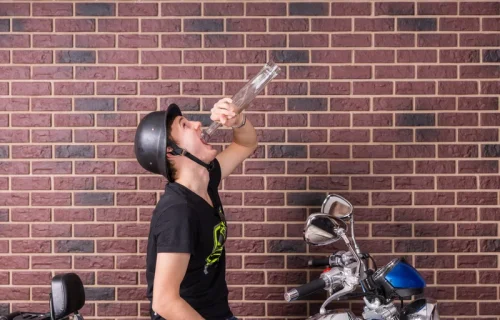
Alcohol withdrawal https://ecosoberhouse.com/ shakes, also known as tremors or shaking, are common symptoms of alcohol withdrawal. People with alcohol use disorder should be monitored by a medical professional when withdrawing from alcohol. Moderate to heavy drinkers can also benefit from medical supervision in the acute withdrawal stage.
Signs of Alcohol Use Disorder
However, alcohol withdrawal syndrome is dangerous and require supervision from medical professionals. Your body needs to work through this withdrawal process, which requires no longer drinking alcohol at all. Alcohol withdrawal can become severe and potentially dangerous, so it’s important to seek professional help. These shakes are a common symptom of alcohol withdrawal syndrome, which occurs as the body adjusts to functioning without alcohol. People can partake in some natural remedies and activities to keep their minds occupied and help pass the time as withdrawal symptoms fade. Some of these remedies can be useful during withdrawal itself, and some are more helpful as you cope with cravings.
- Alcohol withdrawal syndrome (AWS) is a significant factor in the development of detox shakes.
- Often, cravings can come quickly and in succession of each other.
- This causes you to feel hangover symptoms shortly after drinking.
- Our licensed drug detox facility in Charlotte, NC is designed to help you begin your addiction treatment while supporting you through the potential struggles of drug abuse withdrawal symptoms.
- The alcohol shakes and other symptoms will be lessened the more you’re able to flush the toxins out of your system.
Start the admissions process to begin building a life worth living.
Alcohol withdrawal shakes are a common symptom of alcohol withdrawal and can range from mild to severe. Alcohol withdrawal shakes are caused by the sudden cessation of alcohol consumption after prolonged and heavy use. The severity of the tremors can depend on a variety of factors, including the amount and duration of alcohol use, age, gender, and overall health.

How to Stop Drinking: Making a Plan That Works for You
- Weaning off alcohol can benefit people who drink moderately or have support systems.
- If you have any questions or concerns, share your results with your doctor.
Seeking medical attention and supervision is crucial, especially for individuals experiencing severe how to stop alcohol shakes at home symptoms. Detoxification, medications, therapy, and support groups all play important roles in managing alcohol withdrawal shakes and helping individuals embark on their recovery journey. There are many treatment options available to help manage alcohol withdrawal shakes. Medical treatment, detoxification, medications, therapy, and support groups can all be effective in managing withdrawal symptoms and helping you begin your journey to recovery.
- As a practicing physician, Josh helps manage the NYC Health + Hospitals/Bellevue addiction medicine clinic in adult primary care.
- If you’ve ever experienced a night of heavy drinking, chances are you know what it feels like to wake up the next day and feel jittery.
- However, long-term alcohol abuse can cause brain, nerve, and liver damage, which may result in permanent tremors.
- It can be helpful to write down your reasons for quitting and the difficulty of withdrawal while it is fresh in your mind.
- Start a new hobby or plan a project to keep your mind off cravings and triggers.

Aside from providing emotional support, they can also call medical professionals if something goes wrong. Alcohol withdrawal symptoms can be painful and potentially life-threatening, so it’s important to have people you can rely on. It’s not wise to try and stop using alcohol on your own if you are experiencing withdrawal symptoms.
- You may experience alcohol withdrawal symptoms when you quit drinking alcohol.
- This is part of our ongoing commitment to ensure FHE Health is trusted as a leader in mental health and addiction care.
- When you drink alcohol, it messes with the balance of certain neurotransmitters in your brain—specifically GABA (Gamma-Aminobutyric Acid) and glutamate.

